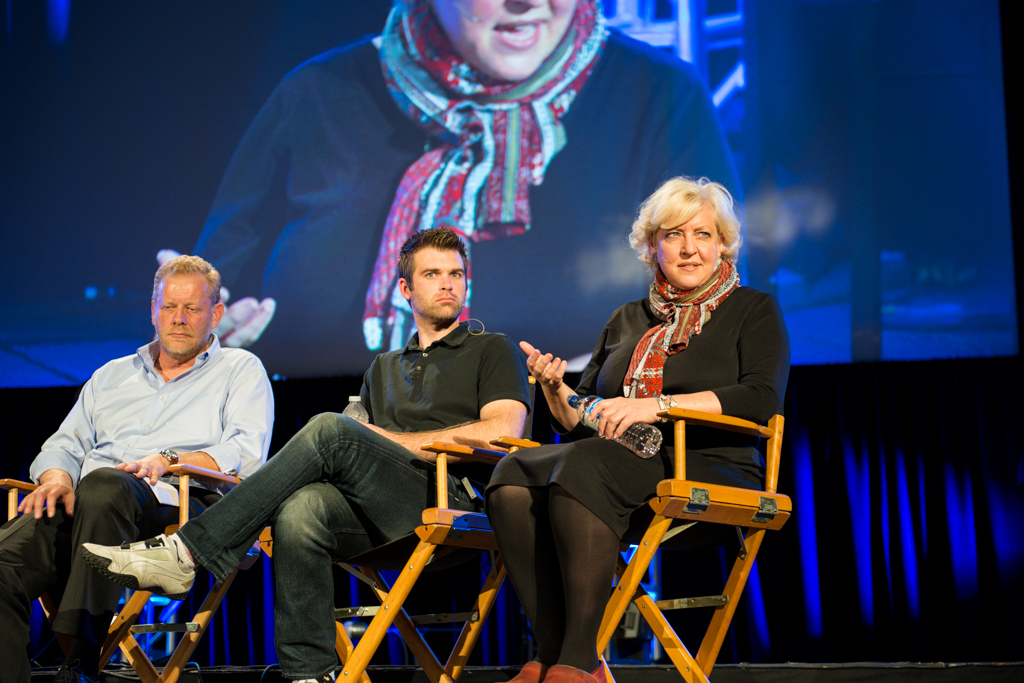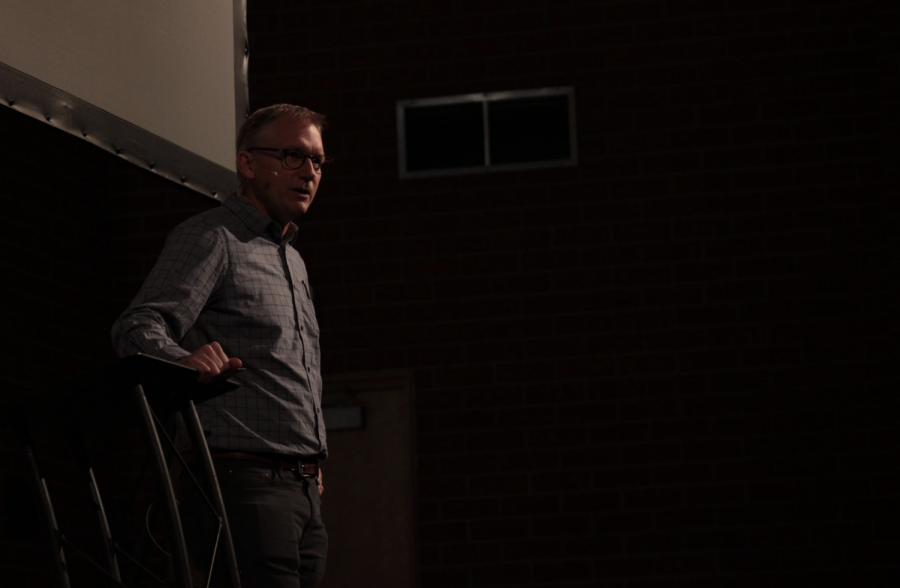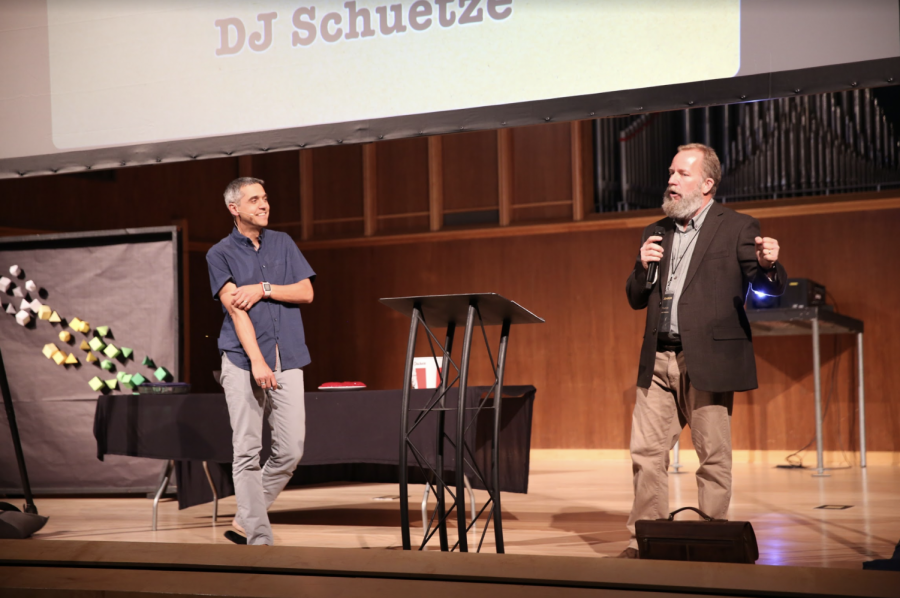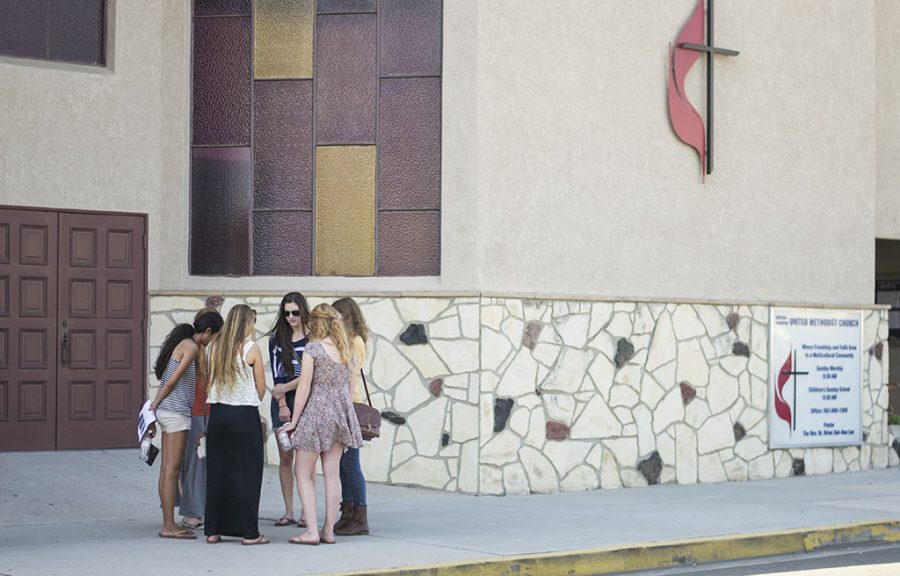It was a grand kickoff for CCT’s Thoughtful Cinema. This event, the first of many to come, was an opportunity for students to join the conversation about the relationship between movies and culture, and how Christians do — or should — interact with it.
All my life I’ve heard the phrase, “Movies these days…” in that condemning, and honestly fearful tone. Though I am tremendously careful about what kinds of movies I watch, I think Christians’ mindset about the film industry has to change if we are going to change it. We can’t change something if we don’t believe in it.
CCT’s Thoughtful Cinema was a refreshing reminder that Hollywood is not going to hell in a handbasket, that God has a heart for the film industry and that we can partner with Him to create films that change culture.
Steve Classen, professor of film and media studies at Cal State Los Angeles University, opened the night with a challenging thought: “The way to change culture is to create more of it.”
This powerful statement launched us into the world premier of an innovative movie, “None (pronounced NŌNE): The Prayer of the Mournful Songwriter.”
Directed and produced by Lauralee Farrer, “None” is one of eight movies characterizing the eight hours of prayer within a day. “None” was about the hour of 3 p.m., an hour of melancholy, longing, loneliness and questioning.
We see an intimate day in the life of a man characterizing None, also known as the Mournful Songwriter.
Conflicted by leaving his beautiful two-year-old daughter as he goes to work, None paces the front steps of his house for a few minutes before finally leaving.
This scene starts with the movie tension, conflict and longing. And like magic, these feelings don’t go away, but grow stronger throughout the film.
None works at Artwork Framing where we see a zillion pictures of his past life as a musician on the wall — we find out he was the most talented member of a group called The Parson Red Heads before he married.
I think the most pivotal movement in the film was when The Parson Red Heads came into the frame shop and nudged None to play their old hit song. With his guitar clasped in his hands and the selected song on his tongue, for the first time, None’s face comes alive.
But when his band has to leave, the camera focuses on the face of None. His bright smile flattens and his eyes dim, lost in a revelation that his past is gone. He’s no longer the songwriter; he’s a father, a husband and the owner of a frame shop.
Farrer did a brilliant job capturing longing, desperation and grief here. I felt conflict for None’s character, seeing there was not enough time for him to be all that was in his heart to be. He had to choose one thing above another because it was impossible to have both.
As None put it in one of his internal thoughts in the film, “the hardest decisions are which bridges to cross and which bridges to burn.”
The 20 minute film left many confused, quiet, and pondering. Then a panel was seated, and as one panelist put it: isn’t this all our stories? That we have a choice between longing and responsibility?
Todd Pickett, director of spiritual formation, drew a bittersweet metaphor about the character and his job at a frame shop.
Frames are an attempt to preserve and celebrate something that was important to us. But we are also putting a boundary on that memory and season of life, he said.
“We grieve our own lives. We can’t do everything at the same time. We have to choose: one calling, not another,” said Pickett.
Finally Farrer spoke. “None” was supposed to make us ask questions, so she didn’t give any straightforward answers. Yet she explained her heart behind the idea, which was to draw attention to how we are so often unceasingly interrupted by distractions and emotions and doubts about our current place in life, when really God calls us to stop throughout our day, simply acknowledge His presence, and bring to Him the emotional and spiritual tension in our lives.
I am excited there is someone like Farrer creating films like “None” that nudge our hearts towards solitude. She is a culture-changer. It was such a privilege to attend this event and see how she was able to use the powerful medium of film to speak to our desire to know God and hear His voice with new ears.
The next CCT Thoughtful Cinema event will be a showing of the Sundance Film Festival award-winning film “Blood Brother” on Nov. 7 in Mayers Auditorium.









